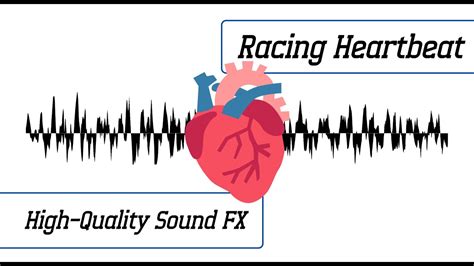What is Cholesterol?
Cholesterol is a waxy substance that your body needs to function properly. However, high levels of cholesterol can increase your risk of heart disease and stroke.

The two main types of cholesterol are:
- LDL (bad) cholesterol: This type of cholesterol can build up in your arteries and narrow them, which can lead to heart disease and stroke.
- HDL (good) cholesterol: This type of cholesterol helps to remove LDL cholesterol from your arteries and protect your heart.
What Causes High Cholesterol?
There are many factors that can contribute to high cholesterol, including:
- Diet: Eating foods that are high in saturated and trans fats can raise your cholesterol levels.
- Weight: Being overweight or obese can increase your cholesterol levels.
- Physical activity: Not getting enough exercise can raise your cholesterol levels.
- Smoking: Smoking can damage your arteries and increase your cholesterol levels.
- Family history: If you have a family history of high cholesterol, you are more likely to have high cholesterol yourself.
9 Tips For Lowering Cholesterol Levels
Here are some tips that can help you lower your cholesterol levels:
- Eat a healthy diet. A healthy diet for lowering cholesterol should be low in saturated and trans fats and high in soluble fiber. Soluble fiber can help to bind cholesterol in your digestive tract and prevent it from being absorbed into your bloodstream. Good sources of soluble fiber include oats, barley, beans, lentils, and apples.
- Lose weight. If you are overweight or obese, losing weight can help to lower your cholesterol levels. Even a small amount of weight loss can make a difference.
- Get regular exercise. Exercise can help to lower your cholesterol levels by increasing your HDL cholesterol and decreasing your LDL cholesterol. Aim for at least 30 minutes of moderate-intensity exercise most days of the week.
- Quit smoking. Smoking can damage your arteries and increase your cholesterol levels. Quitting smoking is one of the best things you can do for your heart health.
- Take medication. If you have high cholesterol, your doctor may prescribe medication to help lower your cholesterol levels. There are several different types of cholesterol-lowering medications available, and your doctor will recommend the best one for you.
4 Tables To Track Your Progress
| Cholesterol Levels | Desirable | Borderline High | High | Very High |
|---|---|---|---|---|
| Total Cholesterol | Less than 200 mg/dL | 200-239 mg/dL | 240-299 mg/dL | 300 mg/dL or more |
| LDL (Bad) Cholesterol | Less than 100 mg/dL | 100-129 mg/dL | 130-159 mg/dL | 160 mg/dL or more |
| HDL (Good) Cholesterol | 60 mg/dL or more | 50-59 mg/dL | 40-49 mg/dL | Less than 40 mg/dL |
| Triglycerides | Less than 150 mg/dL | 150-199 mg/dL | 200-499 mg/dL | 500 mg/dL or more |
| Foods to Avoid | Foods to Limit | Foods to Enjoy | ||
| —————- | —— | —— | ||
| Saturated Fat | Trans Fat | Soluble Fiber | ||
| Red meat | Processed meats | Oats | ||
| Butter | Margarine | Barley | ||
| Coconut oil | Palm oil | Beans | ||
| Physical Activity | Frequency | Intensity | Duration | |
| —————- | —— | —— | —— | |
| Aerobic exercise | At least 30 minutes most days of the week | Moderate-intensity | ||
| Strength training | At least twice a week | Vigorous-intensity | ||
| Smoking | Status | Risk | ||
| —————- | —— | —— | ||
| Current smoker | High risk of heart disease and stroke | |||
| Former smoker | Lower risk of heart disease and stroke than current smokers | |||
| Never smoked | Lowest risk of heart disease and stroke | |||
| Medication | Type | Dosage | Frequency | |
| —————- | —— | —— | —— | |
| Statins | Simvastatin (Zocor), atorvastatin (Lipitor), rosuvastatin (Crestor) | 10-80 mg daily | Once or twice daily | |
| Bile acid resins | Cholestyramine (Questran), colesevelam (Welchol) | 4-16 grams daily | Once or twice daily | |
| Ezetimibe | Ezetimibe (Zetia) | 10 mg daily | Once daily | |
| PCSK9 inhibitors | Evolocumab (Repatha), alirocumab (Praluent) | 140-210 mg every 2 weeks | Every 2 or 4 weeks |
6-8 FAQs
Question: What is the best way to lower my cholesterol?
Answer: The best way to lower your cholesterol is to make lifestyle changes, such as eating a healthy diet, losing weight, getting regular exercise, and quitting smoking. If these changes are not enough to lower your cholesterol levels, your doctor may prescribe medication.
Question: How can I tell if I have high cholesterol?
Answer: High cholesterol usually does not have any symptoms. The only way to know if you have high cholesterol is to have your cholesterol levels checked.
Question: What are the risks of high cholesterol?
Answer: High cholesterol can increase your risk of heart disease and stroke.
Question: How often should I have my cholesterol levels checked?
Answer: The American Heart Association recommends that adults have their cholesterol levels checked every 5 years. However, your doctor may recommend more frequent testing if you have other risk factors for heart disease, such as high blood pressure, diabetes, or a family history of heart disease.
Question: What are the best foods to eat to lower my cholesterol?
Answer: Some of the best foods to eat to lower your cholesterol include:
- Fruits and vegetables
- Whole grains
- Lean protein
- Fish
- Nuts and seeds
Question: What foods should I avoid if I have high cholesterol?
Answer: Some of the foods to avoid if you have high cholesterol include:
- Saturated fat
- Trans fat
- Cholesterol
- Processed foods
- Sugary drinks















